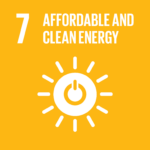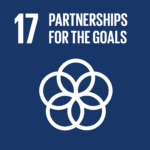The energy transition program is a collaborative effort, with funding and support from ADB’s partners, including the French Development Agency (Agence Française de Développement or AFD) and German Development Cooperation (Kreditanstalt für Wiederaufbau or KfW).
JAKARTA — Indonesia has taken a significant step toward a sustainable energy future, securing a $500 million (Rp 7.5 trillion) loan from the Asian Development Bank (ADB) to accelerate its energy transition. The funds are aimed at supporting Indonesia’s national energy transition program, which focuses on developing affordable and sustainable energy solutions.
RELEVANT SUSTAINABLE GOALS




The ADB’s Director for Indonesia, Jiro Tominaga, emphasized the importance of this loan, describing it as a critical part of Indonesia’s broader efforts to meet its nationally determined contributions (NDCs) and achieve net-zero emissions in the power sector by 2050.
“Indonesia is at a pivotal point in its energy transition journey,” said Tominaga in a statement on Friday. “This policy-based loan supports the development of foundational and collaborative policies that will address the complex challenges facing the country as it moves toward sustainable and clean energy.”
Indonesia’s Heavy Reliance on Fossil Fuels
Indonesia’s electricity capacity has grown rapidly in recent years, easing many of the country’s power supply constraints. However, this growth has led to increased dependence on fossil fuels such as coal, gas, and diesel. Today, the majority of Indonesia’s electricity generation is derived from these carbon-intensive sources.
The ADB loan will focus on building a strong regulatory framework for the country’s clean energy transition. This includes enhancing governance in the energy sector, improving financial sustainability, and ensuring a just and inclusive transition that benefits all Indonesians.
Strengthening Policies for Energy Transition
A key element of Indonesia’s transition plan is the development of the Comprehensive Investment and Policy Plan(CIPP). This plan, backed by the Just Energy Transition Partnership (JETP), will identify investment needs and opportunities to achieve a fair energy transition. The ADB loan will also support regulatory reforms to scale up renewable energy capacity and strengthen governance within state-owned energy enterprises.
Tominaga pointed to the importance of refining regulations to promote the expansion of renewable energy capacity and the need for initiatives to enhance gender equality in the energy sector. “Other important steps include regulatory improvements to boost renewable energy capacity and initiatives to strengthen the governance and capacity of state-owned energy companies,” he said.
The energy transition program is a collaborative effort, with funding and support from ADB’s partners, including the French Development Agency (Agence Française de Développement or AFD) and German Development Cooperation (Kreditanstalt für Wiederaufbau or KfW). These partners are committed to supporting Indonesia’s leadership in achieving a clean energy transition.
ADB is also playing a crucial role in the early stages of developing Indonesia’s regulatory framework for energy transition. This includes support through the Energy Transition Mechanism (ETM), which focuses on both government-guaranteed and non-guaranteed infrastructure financing, as well as a wide range of technical assistance projects.
A Pathway to Sustainability
The ADB’s commitment to helping Indonesia transition to clean energy aligns with the bank’s broader goal of fostering a prosperous, inclusive, resilient, and sustainable Asia-Pacific region. By supporting projects like this, ADB is working to eradicate extreme poverty and ensure long-term sustainability for the region.
“ADB is committed to achieving a prosperous, inclusive, resilient, and sustainable Asia and the Pacific, and continues its efforts to eradicate extreme poverty,” Tominaga emphasized.
You may also be interested in :
Pertamina Group Power Rural Indonesia With Solar Energy, Boosting Sustainable Agriculture



